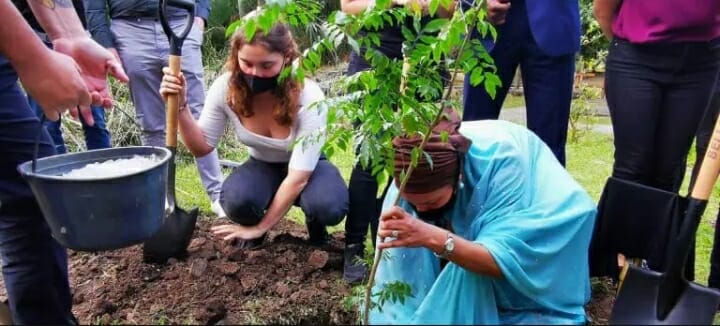According to UN Deputy Secretary-General Amina Mohammed, the UN “belongs” to the younger generation, and countries must ensure that they participate in environmental and climate decisions.
Mohammed made the remarks on the final day of her two-day visit to Costa Rica in Central America.
Mohammed, who met with young environmental and climate activists, urged them to link the climate talks to what is going on in the rest of the world.
“We must fight for the strengthening of democracy and participate in elections because, at the end of the day, democracy is also climate action.”
During their conversation, the activists expressed concern about the effects of climate change on the most marginalized populations.
They assured UN Secretary-General Ban Ki-moon that young people were increasingly raising their voices and mobilizing to demand that countries follow international agreements.
“We need to be more ambitious and move faster for the environment and climate, but we also need the world to recognize, value, and give young people the space they deserve in climate negotiations,” said Sara Cognuck, one of the young environmental leaders.
Mohammed urged young people to strengthen their organizing around issues and to find ways to fund their causes in order to ensure that their voices and actions reached every corner of the globe.
Climate change is the defining issue of our time, according to the UN, and it featured prominently in her discussions with Costa Rican officials, civil society groups, and others.
On Monday, Mohammed met with President Carlos Alvarado and Vice President Epsy Campbell to identify and promote joint cooperation in environmental protection, climate mitigation and adaptation, and development financing for developing countries.
They also looked at how to improve services for the most vulnerable populations, such as people of African descent, women, indigenous peoples, migrants, asylum seekers, children, and adolescents.
Costa Rica’s leadership in mobilizing development finance for middle-income countries and achieving debt relief, particularly in the context of the COVID-19 pandemic, was also highlighted during the deputy secretary-visit. general’s
The crisis is jeopardizing global efforts to meet the Sustainable Development Goals (SDGs).
Mohammed emphasized the importance of immediate action and ambition.
“We need to take solutions to the next level and overcome the challenges that lie ahead.” “The UN is committed to assisting Costa Rica in fulfilling the promise of the SDGs,” she said.
Mohammed also highlighted Costa Rica’s proposal for a COVID-19 Economic Relief Fund (CFE) and similar efforts to increase budgetary headroom in Costa Rica and other middle-income nations for green, inclusive, and resilient recovery.
Talks also covered innovative financing tools, such as “blue” and “green” bonds, as well as aligning investments in strategic sectors such as social protection and “green” jobs to strengthen future resilience.
During her tour, Mohammed spoke with government ministers and leaders from the Central Bank, as well as leaders in fields such as public finance and the business sector, to assist the country’s efforts to achieve the SDGs.
Mohammed also planted a tree at the park, launching the UN Garden and reaffirming his commitment to young people and vulnerable communities in Costa Rica and around the world.
